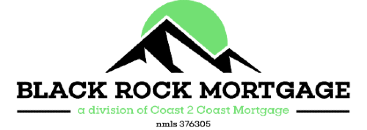Conventional Mortgage in Florida
Conventional mortgages are flexible to meet your down payment and term needs.About Conventional Financing
A conventional mortgage in Florida is a great option to use when purchasing your new home. It’s the only way you can avoid any form of mortgage insurance by putting down at least 20%. That will keep your payment to a minimum by eliminating the monthly mortgage insurance and upfront funding fee you incur when using an FHA, USDA or VA financing. However conventional financing is still a great option with less money down. You can buy with as little as 3% down if you are a first time home buyer, with anything less than 20% down you will have private mortgage insurance, also known as PMI.
Conventional financing is also available for manufactured housing with some different limitations. Additionally you can build a new home with conventional financing. Currently the maximum loan limit for conventional financing is $726,200 for a single family home in most counties within the United States.

Credit Score and Conventional Home Loans
Your credit score is a very important factor with conventional financing. The minimum credit score is 620 but the impact on your interest rate can vary substantially between a 620 credit score and a 760. Rate will be affected incrementally at various credit thresholds and loan to value ratios (how much you are putting down). Additionally if you aren’t putting 20% down, private mortgage insurance rates are affected as well. Conventional mortgages can be more strict when it comes to seasoning for bankruptcies, foreclosures, and short sales, but some exceptions apply when extenuating circumstances can be documented.
Private Mortgage Insurance
If you aren’t putting 20% down you will have private mortgage insurance which is also affected by your credit score. For private mortgage insurance rates visit Essent or MGIC. PMI can either be borrower paid or built into the interest rate. The benefit to borrower paid is can be eliminated after a minimum of 7 years and a 78% loan to value ratio. Lender paid mortgage insurance is for the life of the loan as the rate is incrementally higher. The benefit though is often times your payment is less. This can be an advantage if debt to income ratios are tight. You can also avoid PMI with a Piggyback mortgage with only 10% down. We have access to some of the cheapest PMI rates in the country through our preferred lender partner United Wholesale Mortgage.
Investment Properties
Investment properties require a minimum of 20% down. However your rate is improved with 25% down. Your interest rate will typically be higher in any case compared to a primary or secondary home loan as the risk is higher for the lender. Keep in mind that an appraisal for an investment property will cost a little more than typical because a valuation of potential rent is required as well. The condition of the property must still be considered functional.
Second Home
You can purchase a second home utilizing conventional financing with as little as 10% down in Florida. This may be reduced in the future to 5% but its currently still at 10%. It’s a great option for soon to be retirees or families who just want to come play in the sunshine state. When purchasing a second home in Florida if you live in Florida the property can’t be nearby your primary residence unless the property has features that your primary residence doesn’t. For example a home on waterfront, or even a home with some wide open spaces for recreation if your primary residence is on a small lot, these can be features that would qualify a home as a second home.
Seller Concessions for Closing Costs
Below is a list of the allowable seller concessions for closing costs depending on down payment and property type.
- 75% LTV and lower = 9% allowable Seller’s concession
- 75.01 – 90% LTV = 6% allowable Seller’s concession
- 90.01 LTV and higher = 3% allowable Seller’s concession
- Investment properties max is 2%, 20% down payment required
Self Employed Borrowers
If you are self employed its very possible that conventional financing could be the best route for you. Being self employed we typically try to use the tax code to best of our advantage. That means we utilize all possible write offs. Underwriters unfortunately need to go off of the net income for self employed borrowers, not the gross income like w-2 wage earners. There are certain deductions like depreciation and a percentage of your mileage write off that can often be added back in as usable income if you are using a schedule C.
One great advantage of being self employed for at least 5 years is that going through Freddie Mac we can use 1 year of tax returns instead of averaging the past 2 years. This can create a large advantage when calculating debt ratios and is only possible with conventional financing. Here’s more self employed mortgage options.


 Feel free to call or text message me directly at
Feel free to call or text message me directly at 
